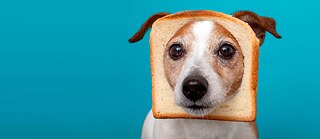Frankly ... integrated
Bread Forever

What are Germany’s biggest culinary claims-to-fame abroad? Beer and bread, of course. Sineb el Masrar tells us why bread tastes so much better ever since the taming of fire, how much we owe the ancient Egyptians for the art of baking bread, and what our daily bread has to do with patriarchy.
By Sineb El Masrar
Germany is world-renowned for its many different kinds of bread. And the same goes for German beers. Speaking of which, Oktoberfest was first held in 1810 to celebrate the wedding of Crown Prince Ludwig of Bavaria and Princess Therese. To this day, the annual revelry draws millions of revellers from all over the world to Munich’s Theresienwiese, where they end up happily holding a pretzel in one hand and a big beer mug in the other, punch-drunk and not infrequently slurring their speech. It may seem old-fashioned and outmoded, but countless people just adore Oktoberfest. Some traditions simply live on from one generation to the next, spreading by contagion to more and more people, even across national borders.
Bread and fat: a perfect match
So it goes with bread, too. They say there are a whopping three thousand different kinds of bread in Germany – plus a few new ones, no doubt, since the Covid lockdowns, when many a household switched to baking their own bread. As for me, I like mixing nuts of various kinds into my dough. Toasting brings out the aroma in the bread, and makes every sandwich a delectable delight – though butter is often all the spread you need. Or dip your bread in some quality olive oil, as they do down in the Mediterranean region. Either way, both fats with bread are a perfect match, as they say in online dating nowadays.Gruel for all!
It all started with grain – the basis of both beer and bread. Some thirty thousand years ago, people first began eating gruel, a thin, watery porridge made of cereals. Some wolfed it right down to allay their hunger. Others let it ferment for a while before partaking – and were probably happy with the buzz it gave them afterwards. Back in those days, just about every day was Oktoberfest. Then, when they put it all in the fire, baking was born and grain-growing became a mainstay of human life, eventually leading people to settle down and stay put. They say that the sedentary life gave rise to patriarchy about eleven thousand years ago. So was it all that grain and bread that bred patriarchy? What does this mean for the cause of emancipation today? Should we eat less grain? Boycott bread? Or, on the contrary, bread and cereals for all, with gluten or without?Sourdough is king
One more key ingredient: German bread wouldn’t amount to much without the help of folks from other climes. Because bread wouldn’t be half as exciting and wouldn’t keep half as long without leavening. Anyone who’s into baking bread knows that. Without sourdough starter, there’d be no rye bread or wholemeal bread – in fact the whole gamut of German breads depends on sourdough. And who first discovered leavening? The Swiss? Nope! It was the pyramid builders of ancient Egypt! So Germany meets North Africa. They belong together like wheat, salt, water and yeast. We are what we eat, and even the staunchest patriots are willy-nilly multiculti. So, with all that in mind, let’s bake ourselves a great big leavened loaf, call our loved ones to the table and break bread together, whilst recalling all the good things this sedentary life has brought us, including bread and beer!“Frankly ...”
On an alternating basis, our “Frankly …” column series is written by Sineb El Masrar, Susi Bumms and Maximilian Buddenbohm. Sineb El Masrar writes about migration to and the multicultural society in Germany: What strikes her, what is strange, which interesting insights emerge?